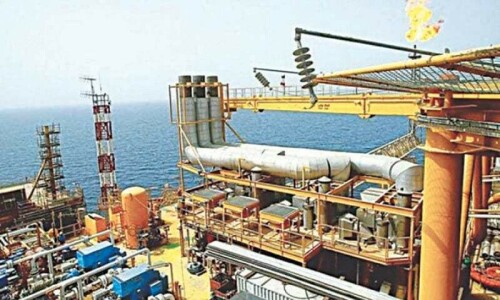THE reluctance to work at strengthening the foundations is reflected in the inability to deal with crises. There was much discussion on how the presence of a local government could have helped Pakistan establish a firmer grip on the situation arising out of Covid-19 when the rains added impetus to the debate. Just as the basic local tier of political parties, vital to any system claiming to be democratic, is fiercely discouraged, a local government worth the title is an elusive goal. Punjab wrapped up its local bodies last summer. Sindh has a debilitated system that was hardly expected to do anything after a 2013 amendment sapped all energy from the local bodies. KP has recently managed to put off its LG polls till next August, while the system in Balochistan was dissolved in 2018. And then we ask why our cities are drowning, and why there is no one there to forewarn the villagers of Kacho that their territory is about to be flooded. They are the victims of a system abandoned midway, plagued by infighting among elite power holders. Double standards is the accusation thrown at the harbingers of provincial autonomy — basically the PPP — by the central government. Sindh’s ruling party is accused of denying powers to the grassroots tier — the local government — even as it demands provincial powers from the centre. In the next frame, the centre, ie the PTI government, is found crippling and then doing away with an entire LG system in Punjab — because local governments in the province were hugely dominated by the PML-N.
The problem lies in concentrating too many powers in too few hands, even if it means snubbing one’s own party in the process. When the PML-N controlled local governments across Punjab, Shahbaz Sharif acted as king instead of giving LG officials their due. There is only one way this can be remedied, and it is neither by sympathising with nor making fun of a Karachi mayor determined to end his term this month. There can be no compromise on grassroots empowerment. This means there is no going back on decentralisation. Hence, the push for further zonings must continue, until power is truly devolved and shared at the grassroots. Hopefully, the water levels have risen to a sufficient level for people to react sharply and demand a local government as a fundamental right. Perhaps the floods have left the soil fertile for this.
Published in Dawn, August 13th, 2020








































